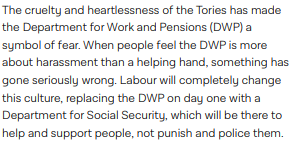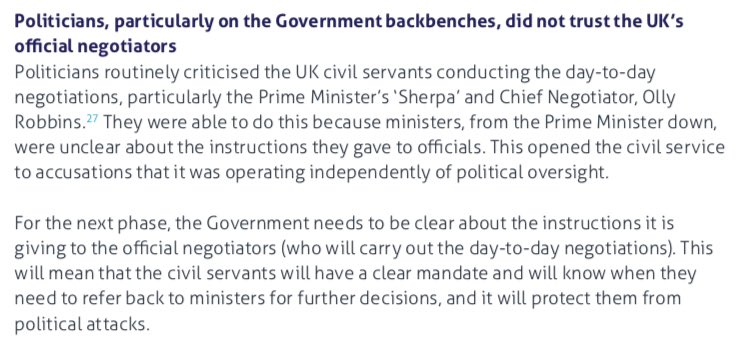
Yday was a big day for select committees, with David Cameron and Lord Geidt, the new independent adviser on ministerial interests, giving evidence.
So what did we learn? A few thoughts on how both outings reinforced the need for clearer rules on standards in public life...
So what did we learn? A few thoughts on how both outings reinforced the need for clearer rules on standards in public life...
Let's start with Cameron. Among all the detailed chat about his role with Greensill - which others are better placed than me to analyse - he used his appearance as an opportunity to big up the rules on lobbying and transparency that he introduced as PM... 

But the very fact that his work for Greensill has provoked this controversy shows that the rules he created aren't enough to ensure public trust.
There's a clear need for the rules to be updated, so this kind of thing can't happen again.
There's a clear need for the rules to be updated, so this kind of thing can't happen again.
Cameron's remarks also highlight the patchy nature of the transparency rules he brought in - he said he knew any meetings that did take place would be reported, but of course he was mainly texting - which ministers have no obligation to report.
Similarly, Lord Geidt's evidence revealed the weaknesses of the current system. Lord Geidt made much of the fact that he has new terms of reference for the role. But are these really substantive changes? 



Lord Geidt can now suggest to the PM that he investigates potential breaches of the ministerial code - but the PM still has to agree...
And he can 'cause' the findings of his inquiries to be published - but it is still the government who will do the actual publishing...
And he can 'cause' the findings of his inquiries to be published - but it is still the government who will do the actual publishing...
(As an aside, anyone who knows anything about government knows that "in a timely manner" can mean whatever government wants it to mean)
So while Cameron and Lord Geidt's appearances at select committees are undoubtedly good things in that openness and transparency is always welcome, they both reveal the need for proper reform of the system.
Luckily @instituteforgov has some suggestions...
Luckily @instituteforgov has some suggestions...
1. As Cameron hinted, former cabinet ministers should be banned from lobbying for much longer after they leave govt - 5 years, not 2. And this should be properly enforced - with fines for those who don't comply
2. All lobbyists, not just consultant lobbyists, should have to register their work with the Public Registrar of Lobbyists. This would expand the law that Cameron introduced as PM, and is what the industry group for lobbyists has been calling for.
3. Ministers should have to publish information on all discussions on government business with outside groups - so texts/messages, calls and emails as well as meetings. Select committees should hold them to account on why they don't.
4. The independent adviser on ministerial interests should be truly independent: able to start investigations and publish the findings without requiring the PM's permission.
If the prime minister makes these changes, he can rebuild trust in the standards that we expect ministers and officials to adhere to, without overly restricting the beneficial movement of people between the public and private sectors.
Because as Lord Geidt said, ultimately the culture of a government is set by the prime minister. Rules are not sufficient - leadership is required. So far, Johnson is missing opportunities to demonstrate that leadership 

You can read much more of @instituteforgov's suggestions on how the prime minister can clean up the system here
instituteforgovernment.org.uk/publications/e…
instituteforgovernment.org.uk/publications/e…
• • •
Missing some Tweet in this thread? You can try to
force a refresh












